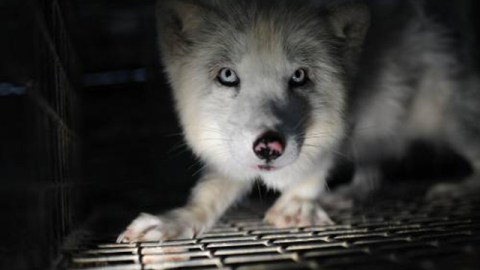Lululemon and the Ghosts in Our Machine

Chip Wilson is the yoga world’s Rob Ford. While the Lululemon founder has not been caught smoking crack, it seems that whatever comes out of his mouth sends him further down the rabbit hole. The Ayn Rand-loving Libertarian billionaire has capitalized for over a decade on the liberal-leaning Whole Foods (also owned by a Libertarian) crowd to the tune of an 11+ billion dollar market cap.
Lululemon’s internal ethos has not sat well with me, though it is important to discern between the products and community the store has created with the founder. Two-and-a-half years ago I attended a Lulu ambassador summit in Whistler and made a host of new friends. I could have done without the Landmark-style emotional dump that comprised the entire first day—this form of breaking down and building up of esteem is a trademark of cults.
This does not imply that a lot of positive ideas and events have not arisen from the community that Lululemon has fostered, which is why the vitriolic boycotts coming from across the yogasphere is surprising and somewhat disturbing. While I would never condone Wilson’s sentiments regarding women’s bodies, those who take yoga seriously need to think more critically about what the discipline teaches, as there are plenty of other companies that deserve our lack of business more than Lululemon. (Noreen Malone gives the most insightful critical synopsis of the debacle here.)
There were far fewer boycotts when Abercrombie & Fitch CEO Mike Jeffries made anti-obese statements, nor did I see cries of outrage when Urban Outfitters founder Richard Hayne helped bankroll anti-gay candidates (and pull pro-gay clothing from his stores). Plenty of people use Amazon as a weekly grocery store without concern for worker’s rights inside those hideous warehouses. And then you have the wondrous hippie-chic kingdom of Uggs and its ‘humane’ killings.
At the Los Angeles premiere of The Ghosts in Our Machine on Friday, Capt. Paul Watson, founder of Sea Shepherd Conservation Society, remarked that we spend billions of dollars trying to contact alien life, yet we don’t know how to talk to life here on our own planet. The archaic belief that non-human animals do not have the same emotional capacities as humans is longstanding, although today we know that that is not the case. Uggs is hardly the only company to subscribe to such a belief.
Ghosts is a beautifully shot documentary detailing the plight of factory farmed animals (as well as animals in natural environments). In the category of The Cove, Blackfish and Earthlings, it is a stark reminder that we are not the only life on this planet, and promotes the necessity of dropping our quasi-religious ideology that animals were ‘put here’ for our pleasure (and torture).
Canadian photographer Jo-Anne McArthur travels around the world documenting conditions inside mink, pig, chicken, puppy, and cow farms, among others. In fact, the only country she does not work in is America, as she knows she can be treated as a terrorist—the American legal system charges those who photograph or video farm conditions on the same level as jihadists.
Director Liz Marshall does a fantastic job at making intense subject matter approachable. Balancing between indignation and delight requires a delicate touch. McArthur’s retreat time in upstate New York’s Farm Sanctuary provides opportunities for ease and candor, with piglets falling into water dishes and once-victimized cows gently returning to normalcy.
The team also does a wonderful job deconstructing, albeit briefly, the ‘humane meat’ myth by showing conditions on organic farms, which are often no better than the factory farms that the Whole Foods crowd decries. The notion that animals are cared for and treated well might alleviate one’s guilt, but it does not reflect reality in any way.
It’s impossible to know the motivations and ideology behind every company we purchase from and support. Only when a Chip Wilson flagrantly abuses his position of power with such revealing insights do we stand up and take notice. I applaud the yoga community expressing resentment for his ignorant commentary. I only question why that sort of critical eye isn’t employed more often.
Arguably the most popular of yoga’s ten major yamas and niyamas (the discipline’s Ten Commandments, of sorts), ahimsa is translated as ‘non-violence’ or ‘non-harming.’ While the exact ramifications of this principle are debated—Is it violence upon humans only? Upon animals, when Brahmanism advocates the ritual slaughter of animals? Internal violence, as the Bhagavad Gita calls for human slaughter in time of war?—we are at least evolved enough to admit that we are not the only species on the earth that matters.
In fact, as Watson noted in his pre-premiere speech, worms would get on just fine without humans, but the reverse is not true. What separates us from the rest of the animal kingdom is our cortex, giving us higher brain abilities of reason and logic. Yet we seem to use so little of it when considering the rest of the planet. In the end, it will not only be those other animals that we’ve terrorized far too long.
Image: Jo-Anne McArthur




